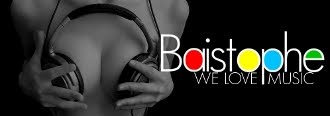Since saxophonist Stan Getz and guitarist Charlie Byrd embraced Brazilian music in the early '60s, the world has come to know and love the gentle sway of bossa nova. Its most outstanding exponents, Joao Gilberto and Antonio Carlos Jobim, inspired, and will doubtless continue to inspire myriad artists to borrow from their songbooks. The problem is, we can't seem to get past Gilberto and Jobim. Canta Brazil (Polygram Records, 1990) and the series beginning with Blue Brazil (Blue Note, 1999) did an excellent job of highlighting a plethora of other Brazilian artists and styles of music, but these efforts are few and far between. Stefano Bollani, in turn, is doing his bit with the release of Carioca; he plunges into the vast Brazilian folk canon preceding bossa, extracting gem after gem and polishing them up, in his quite personal style, to shine anew.
Bollani is no stranger to Brazilian music, having previously recorded an entire album of Jobim's music, Falando do Amor (Venus Jazz, 2003) and the enthusiasm and panache of his playing here reveals an obvious love for, and affinity with the music. The coro and samba which spawned bossa is represented here in all its diversity, and Afro-Cuban rhythms, tango and European styles which have all shaped the development of music in Brazil, color the material on Carioca.
Some of the songs are familiar, such as "Tico Tico no Fuba" by Zequinta de Abreu, which after a teasing intro from Bollani, gallops along at a tremendous lick, with the odd dissonant note thrown in a la Jobim. Marco Pereira's refined acoustic guitar introduces Ary Borrosso's classic theme "Na Baixa do Sapateiro," perhaps better known as "Baia." Again, the pace is fast and punchy, before slowing into a delicate interlude where Bollani caresses the melody. The tune turns into a blues workout a voce basso, with Pereira's fat chords and sizzling Django-esque runs spicing things up and bringing the tune to its lively conclusion. It's a highly enjoyable show-stopper, but lacks the real depth which (pianist) Ahmad Jamal brought the tune.
The remaining tunes are drawn from less known sources, outside Brazil that is. "Au romper da aurora" by Ismael Silva, has a tango-tinged intro which drifts into a driving samba, with saxophone and clarinet combining beautifully and unfurling warm, brassy riffs. "Vals Braziliera" by the great Edu Lobo is a showcase for the gently stated melancholy of Bollani's piano—perhaps only Brazilian blues can sound so beautiful. There are several vocal tracks, the best being Ze Renato's velvety interpretation of "A hora da Razao" by Batatinha. Bollani's one vocal turn is a live rendition of "Trem das Onze" by Adriano Barbosa, delivered with gusto in Portuguese and Italian.
The music on Carioca is as varied and as beautiful as Brazil itself, which one suspects was Bollani's intention. Bollani's playing and arrangements are imaginative, and he honors the writers and traditions of this roots music with playing as authentic as it is seductive. And not a Jobim number in sight.
1. Luz Negra
2. Ao Romper Da Aurora
3. Choro Sim
4. Valsa Brasileira
5. A Voz Do Morro
6. A Hora Da Razão
7. Segura Ele
8. Doce De Coco
9. Folhas Secas
10. Il Domatore Di Pulci
11. Samba E Amor
12. Tico Tico Na Fubá
13. Caprichos Do Destino
14. Na Báixa Do Sapateiro
15. Apanhei-Te Cavaquinho
16. Trem Das Onze/Figlio Unico






1 comment:
And I did that :) And i tested downloaded@MOODSWINGS and the others, but it wasn't working, that's why i took this extreme act :P thanks, man, it worked! :))
now the firts song is playing :)
early october.
the guitar distortion doesn't sounds like the distortion should, it's like a vacuum, or a carburator, an element outside music. hum, i think that this distortion is in the bass.
Post a Comment